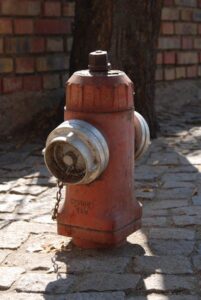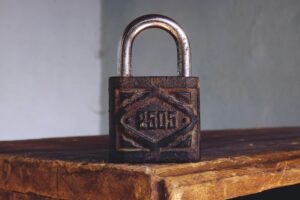Imagine your home as a fortress, a sanctuary where your most precious memories and belongings are kept safe from the outside world. The locks on your doors are the silent guardians of this haven, quietly standing watch day and night. But how often do these guardians need to be renewed to ensure your fortress remains secure? Rekeying your home locks is an essential, yet often overlooked, aspect of home security that can make all the difference between feeling safe and vulnerable. In this article, we delve into the factors that determine the ideal frequency for rekeying your locks, helping you strike the perfect balance between peace of mind and practical maintenance.
Table of Contents
- When to Consider Rekeying Your Home Locks for Optimal Security
- Signs It’s Time to Rekey Your Locks After Moving or Losing Keys
- Comparing Rekeying and Replacing Locks What You Need to Know
- Choosing the Right Locksmith for Professional Rekeying Services
- Maintenance Tips to Extend the Life of Your Rekeyed Locks
- Q&A
- The Way Forward
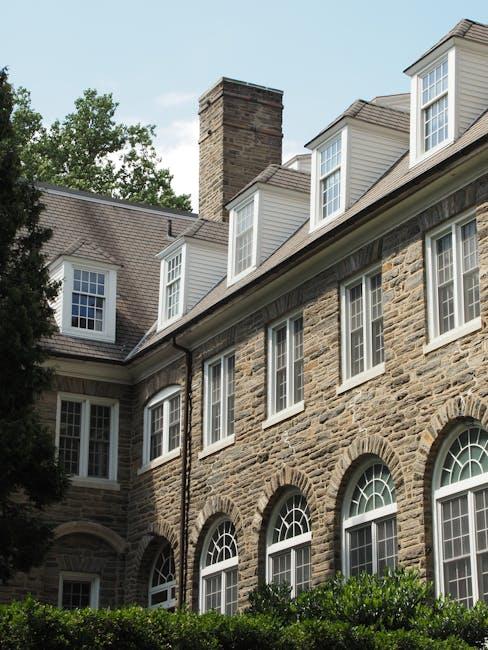
When to Consider Rekeying Your Home Locks for Optimal Security
Knowing the right moment to update your home’s security is crucial. If you’ve recently moved into a new property, it’s wise to rekey your locks immediately-after all, you can never be too sure who might have access to the old keys. Other high-risk situations include the loss or theft of house keys, or after significant personal changes such as a divorce or a domestic helper change. Rekeying in these scenarios guarantees that only trusted individuals hold the keys to your sanctuary, reinforcing your peace of mind.
Aside from these pivotal events, periodic rekeying can be a proactive security measure. Consider the following signs as alerts for when rekeying might be overdue:
- Wear and tear from frequent use compromising lock integrity
- Security breaches in your neighborhood
- Lost or duplicated keys beyond your control
- Upgrading home security to complement alarm systems or smart locks
| Situation | Recommended Action |
|---|---|
| After Moving In | Rekey Immediately |
| Lost Keys | Rekey Within 24 Hours |
| Wear & Tear Noticeable | Schedule Rekey Soon |
| Security Upgrade | Combine Rekey with System |
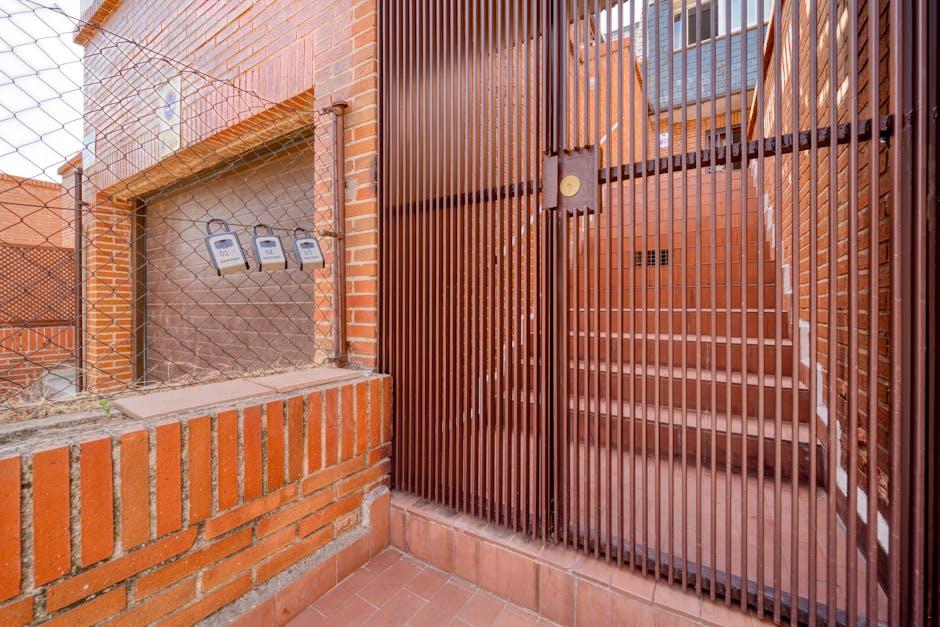
Signs It’s Time to Rekey Your Locks After Moving or Losing Keys
Moving into a new home or misplacing your keys can create an unexpected security gap that you shouldn’t overlook. When someone unknown could potentially have access to your previous residence or lost keys, it’s essential to act swiftly. Signs that it’s time to change your locks include situations where you’ve handed out multiple keys during periods of uncertain ownership or when your keys go missing without any clue on their whereabouts. Don’t underestimate the risks – even a single lost key could provide unwanted access if not addressed promptly.
Look out for these common indicators that demand a lock rekey:
- Recent break-in attempt: Damage or tampering around door locks signals the need for immediate rekeying.
- Uncertain previous ownership history: Bought or rented a property without clarity on how many keys exist?
- Lost sets of keys: Missing keys combined with no way to track their location.
- Shared keys with multiple people: Easily prevent unauthorized access if past tenants, contractors, or neighbors still have keys.
| Scenario | Recommended Action | Timeframe |
|---|---|---|
| Lost keys, unsure who has copies | Rekey all exterior locks | Within 24 hours |
| Moving to a new home | Rekey or replace locks for full security | Before move-in day |
| Key handed out to contractor | Revoke old keys, create new key set | Immediately after contractor leaves |
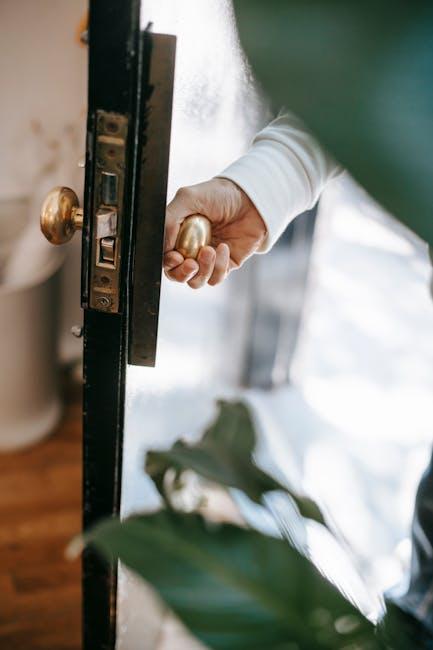
Comparing Rekeying and Replacing Locks What You Need to Know
When deciding between rekeying and replacing your locks, understanding the core differences can save you hassle and money. Rekeying involves changing the internal mechanism of a lock so old keys no longer work, while the lock itself remains intact. This option is typically faster, less expensive, and ideal when you’ve lost keys or moved into a new home. On the other hand, replacing locks means removing the entire lock and fitting a new one, which can improve security if your locks are outdated or damaged beyond repair.
Here’s a quick comparison to help you decide what’s best for your situation:
| Factor | Rekeying | Replacing |
|---|---|---|
| Cost | Lower | Higher |
| Time | Quick (30-60 minutes) | Longer (may require new hardware) |
| Security Upgrade | Minimal | Significant |
| Best For | Lost keys, moved homes | Old or faulty locks |
Ultimately, if your primary concern is convenience and cost-effectiveness, rekeying is usually the smartest choice. But if you’re looking to boost your home’s security or update to more modern locks, replacing might be worth the investment.

Choosing the Right Locksmith for Professional Rekeying Services
Finding a skilled locksmith for your rekeying needs is essential to ensure your home remains secure without unnecessary hassle. Look beyond just affordability-prioritize locksmiths who demonstrate certification, experience in residential locks, and a clear reputation for quality work. Experts with a local footprint often understand neighborhood security nuances better, resulting in tailored solutions rather than one-size-fits-all services.
When selecting your locksmith, consider the following checklist to make a confident choice:
- Licensing & Insurance: Protect yourself by confirming these credentials.
- Transparent Estimates: Clear pricing prevents unpleasant surprises.
- Emergency Availability: Locks can fail anytime-choose someone reliable 24/7.
- Customer Reviews: Real feedback speaks volumes about service quality.
| Criteria | Why It Matters |
|---|---|
| Certification | Ensures knowledge of modern security standards. |
| Experience | Reduces risks of damage and rework. |
| Availability | Provides peace of mind in emergencies. |
| Reputation | Reflects consistent customer satisfaction. |
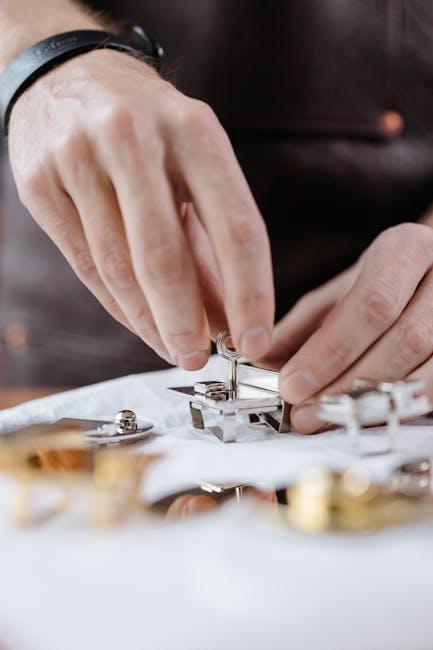
Maintenance Tips to Extend the Life of Your Rekeyed Locks
Protecting your freshly rekeyed locks requires a blend of simple habits and timely care. Regular lubrication with graphite powder or a silicone-based spray can keep the pins inside the lock moving smoothly, preventing jams and wear. Avoid using oil-based lubricants as they attract dust, which can gum up the mechanism. Additionally, ensure your keys are clean and free from grime before insertion to reduce internal abrasion over time.
Environmental factors also play a crucial role in lock longevity. For exterior locks, frequent exposure to moisture and temperature swings can cause corrosion. A practical way to mitigate this is by installing weather shields or covers to protect the lock from rain and snow. Be mindful of physical damage too-avoid attaching heavy keychains that put stress on the lock cylinder. Implement these simple maintenance strategies to keep your rekeyed locks working flawlessly, enhancing your home’s security and your peace of mind.
Q&A
Q: What does it mean to rekey a home lock?
A: Rekeying a home lock involves changing the internal pins of the lock so that it works with a new key. Essentially, you’re not replacing the entire lock, just altering it so old keys no longer work.
Q: Why would I need to rekey my home locks?
A: Rekeying is a smart move after situations like moving into a new home, losing your keys, having keys stolen, or when you want to enhance overall security without the cost of replacing locks.
Q: How often should I rekey my home locks?
A: While there’s no one-size-fits-all timeframe, a good rule of thumb is to rekey every time there’s a security concern-such as after moving in or losing keys. For general maintenance, doing so every 3-5 years can help keep your home secure.
Q: Can rekeying improve my home security?
A: Absolutely. Rekeying ensures that only new keys work with your locks, which can prevent unauthorized access, especially if old keys were misplaced or copied.
Q: Is rekeying expensive or complicated?
A: Rekeying is usually more affordable and quicker than replacing locks. A professional locksmith can often rekey your locks within minutes, making it a convenient security upgrade.
Q: Can I rekey all types of home locks?
A: Most pin-tumbler locks can be rekeyed, which includes the majority of residential door locks. However, some specialized or high-security locks may require different procedures or replacement.
Q: Should I consider rekeying all my locks at once?
A: Rekeying all your home’s locks to work with a single key-known as keying alike-can simplify your life and enhance convenience but plan ahead to ensure it meets your security needs.
Q: What’s the difference between rekeying and changing locks?
A: Rekeying alters the lock’s internal mechanism to fit a new key, while changing locks replaces the entire lock hardware. Rekeying is usually less costly and preserves existing doors and hardware.
Q: How do I know if it’s time to rekey?
A: Consider rekeying if you’ve lost keys, moved into a new place, had a roommate move out, or if your locks show signs of wear. When in doubt, consult a locksmith for a security assessment.
With these insights, rekitting your home locks becomes less of a chore and more of a strategic step to protect your sanctuary. Stay secure, stay savvy!
The Way Forward
In the ever-evolving landscape of home security, knowing when to rekey your locks is a small but powerful step toward safeguarding your sanctuary. Whether after moving into a new place, losing a set of keys, or simply as part of routine upkeep, timely rekeying keeps the keys to your home-and your peace of mind-in trusted hands. So, listen to the quiet warnings of wear and change, and let your locks tell the story of security you can rely on. After all, a home’s true comfort is found not just in its walls, but in the confidence that those walls protect what matters most.



